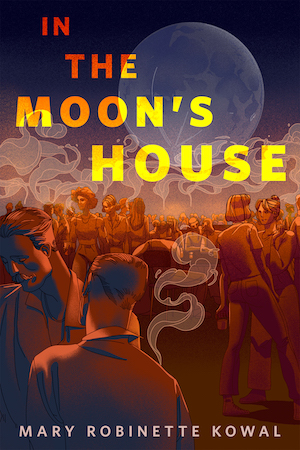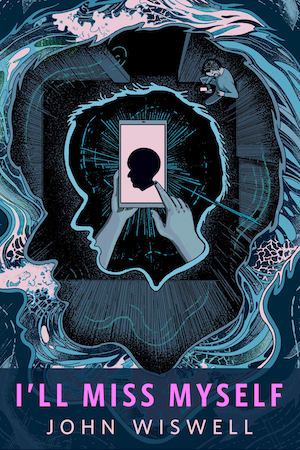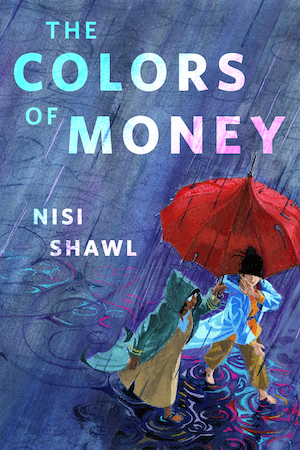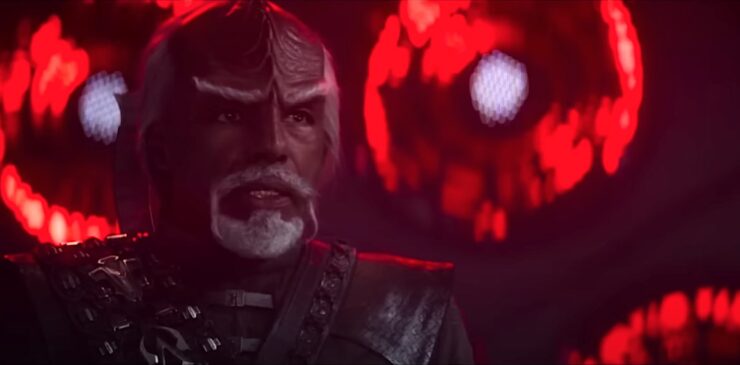Welcome to Close Reads! In this series, Leah Schnelbach and their guests dig into the tiny, weird moments of pop culture—from books to theme songs to viral internet hits—that have burrowed into our minds, found rent-stabilized apartments, started community gardens, and refused to be forced out by corporate interests. This time out, Giles Gough looks dives into how Captain Worf introduces himself, and what that says about the character’s growth.
The finale of Star Trek: Picard is almost universally accepted as being great. Checking in on beloved characters after an absence of twenty years was wonderful, and whilst everyone has their favourites, the character development for Worf cannot go unnoticed. I’ve adored Worf ever since I first saw him in “Encounter at Farpoint” in 1990 (yes, it took them that long to get round to airing it here in the UK). Worf was the biggest, toughest, and in my estimation, coolest character in the cast. Having the bravery to be the first Klingon in Starfleet never escaped my attention, and I’ve loved him for many reasons, some of which we’ll get into later. By virtue of appearing in the most episodes across the extended Star Trek universe, Worf is perhaps the character with whom we’ve spent the most time. In the latter days of The Next Generation we saw him as a single father doing whatever the opposite of gentle parenting is, whereas in Deep Space Nine he spends more time as a geo-political power player and commander of a starship. His early appearances in Picard seemed to suggest he would be swinging from comic relief to screaming bad ass. To anyone else yelling “Dad’s home!” at the TV when he was introduced, just know, you are my people. But there’s something more interesting at play here.
Did you notice how he introduced himself to Raffi?
“I am Worf, son of Mogh, house of Martok, son of Sergey, house of Rozhenko, bane to the Duras family, slayer of Gowron. I have made some chamomile tea. Do you take sugar?” Now, putting aside the awesomeness of this introduction format (name + family connections + all the people I’ve killed + offer of hot beverage) there’s something fascinating going on here. In Klingon culture, (which is still pretty much a feudal system) who your parents are is a big deal. Worf spent 11 seasons of TV and 4 films introducing himself as “Worf, son of Mogh”. He was effectively adopted by General Martok (best Klingon Dad ever, I will not be taking questions at this time) who later became Chancellor of the Klingon empire, so showing off that connection seems obvious. But why mention “son of Sergey, house of Rozhenko”?
Let’s take a moment for a bit of background. Growing up, Worf had a tough time. As a child, he was a survivor of the Khitomer massacre, for which his Dad, Mogh, was falsely accused. Worf was fostered by a Starfleet-enlisted man named Sergey, who was the chief petty officer of the USS Intrepid, and his wife, Helena (I couldn’t find what occupation she had, sorry). Now Chief Petty Officer is what’s called a non-commissioned rank. Meaning, essentially, that it’s the highest rank an enlisted person can attain. Many militaries think of their ‘non-comms’ as the backbone of their armed services, and as we know with Chief O’Brien, they are absolutely essential in keeping everything running. But it’s not a role that comes with a lot of glory and prestige. So why does Worf tell a total stranger about him?
As well as being traumatised by surviving a massacre, Worf was also a lot stronger than the other kids he grew up around. A soccer accident where he went for a header at the same time as another kid resulted in that kid dying. This underscores Worf’s isolation from those around him. He cannot act like the other kids because if he does, someone will get hurt. Consequently, he leans into his Klingon heritage, absolutely obsessing about it, because if you can’t be even a little bit human, you might as well be full on Klingon right? And this is the Worf we know through most of Star Trek. The more his enemies insult his ‘Klingon-ness’ the more Klingon he gets. The lack of basic love and acceptance he receives outside of his parents results in him being really quite toxic in relationships with his wife and his son. In almost every interaction Worf has with his baby’s mom, his son, and later his wife, his notion of what it was to be Klingon was painfully rigid. He acts like someone who learned about being Klingon from a book.
So, what’s changed? Well, Deep Space Nine ends with Martok naming Worf as the Federation Ambassador to the Klingon Empire, perfect for a man who has spent his life being caught between two worlds. Presumably, in the intervening twenty years Worf has been able to hang out with other Klingons. He went from being the most Klingon officer in Starfleet, to the most Starfleet Klingon in the Empire. Once he’s been accepted by other Klingons, when he no longer has to prove his ‘Klingon-ness’, he can finally be able to understand and appreciate the benefits of being raised by humans. In essence, Worf is a third culture kid, (that is, a child who was raised outside of the culture of their parents) who only when he went back to the culture he was born into, was he able to appreciate the culture in which he was raised. It really underscores his meaning when he says I’ve been ‘working on myself’ because it indicates a level of self-reflection the younger Worf didn’t have. In a culture that prizes status and titles, Worf is basically telling everyone he meets: “I’m really proud of the man who raised me” and my gosh, I just think that’s beautiful.
Perhaps this sense of acceptance resonates with me on more levels than I care to admit. For some context, I’m from Wales, a constituent country in the United Kingdom. Now this all may sounds ridiculous when talking about a country that you could fit into Texas with room to spare, but believe me when I say that the countries within the UK all have distinct, if overlapping, identities. Wales has the dubious honour of being the first country ever conquered by the English and the Welsh have been given plenty of reasons to dislike the English right up to the present day. So if, perhaps, you were born in Wales, to two parents who weren’t Welsh and didn’t speak the language, you can probably imagine the sense of unease that might create growing up. Throughout my adolescence, I had a feeling of being held at a distance from my local community, which in turn led me to reject any sense of ‘Welshness’ in my identity. It was only when I left Wales to start my teaching career that I began to embrace any part of my Welsh identity. Instead of passively accepting that “Welsh” was something I could never truly be, I began to shape what it was around my own experiences and values, leading to a greater sense of acceptance. Now I don’t pretend for one second that this experience is analogous to being raised in a culture radically different to the one you’re born into, but what I do hope to illustrate is that many of us are able to relate to Worf’s journey here, even if our story wasn’t told on such a large canvas.
Star Trek: Picard has not been without its detractors in its three-year run, (that was, at least before the finale which left us crying with unbridled joy) and even the most staunch defender must admit the plotting has at times, been all over the place. But the characterisation? The nuance and attention to detail with characters we’ve loved like family for decades? That is simply astounding. Worf may not have been the focal point of this story (the show is called Picard after all), or even gotten quite as much screen time in this season as his TNG companions. But the attention to detail in the characterisation gives such wonderful hints at a character arc nearly 35 years in the making.
Giles Gough is a writer and filmmaker based in Manchester, England. He hosts the God in Film podcast where a Christian and an atheist examine faith parallels in the best that cinema and TV has to offer. You can find him on Twitter: @giles_gough










